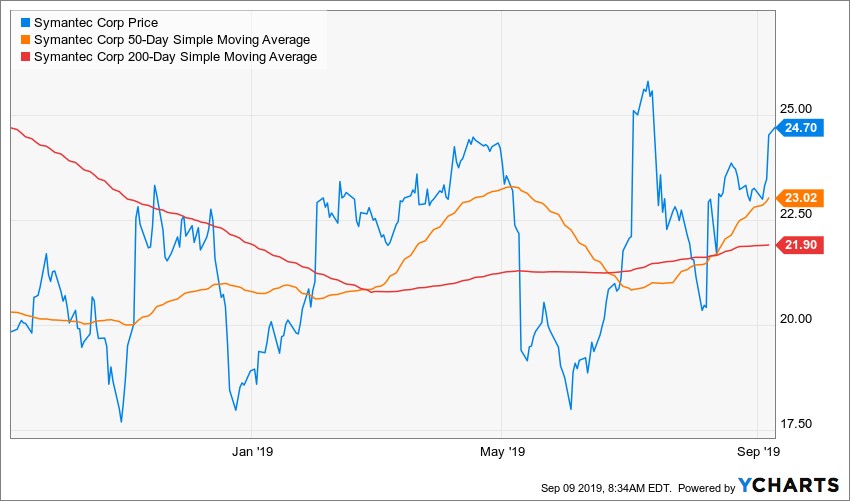Hackers are About to Meet Their Match with 5G
 |
Fifth-generation cellular network technology is big. Bigger than the 5G networks that companies like Verizon (VZ), T-Mobile (TMUS), AT&T (T) and Sprint (S) are looking to roll out in select cities. And much bigger than the brand-new Samsung phones that are the first to offer the option for 5G wireless connectivity.
This is what the starting gate in the "race to 5G" looks like. It's possible that these early leaders have what it takes to win … and keep winning.
However, being first and the fastest to develop these ultra-fast networks — and the hardware and software that will be made possible because of them — is great only if you end up at the right place.
Or, to borrow the philosophy of World War II U.S. Admiral Arleigh Burke, speed is important … but disastrous without a good targeting solution.
There are a lot of dark horses in the 5G marathon that you may not even know are in the race. Entire industries are going to have to upgrade to operate on them.
It's going to be costly. But the technology that comes out of necessity will be mind-blowing.
So, too, will the potential for massive profits …
Cybersecurity has been on the forefront of many conversations lately. And for good reason.
With the recent hack — and subsequent compromise of data — at Capital One (COF), keeping sensitive information out of the hands of those who intend to do harm has become a high-priority item for many companies and individuals.
In fact, cybersecurity is a $124 billion business, according to Gartner. As enterprises, hospitals and governments rush to digitize their networks, data storage facilities are bursting at the seams with valuable data.
Yet, our current cybersecurity networks aren't ready for 5G. That's because 5G represents a complete physical overhaul of networks as we known them.
This is due to 5G operating almost entirely on software. Future upgrades will come to your networks much like updates currently do to your smartphone.
This leaves the data carried over 5G networks vulnerable. Any devices or apps that are connected by 5G would lack sufficient security.
Add to that the intent to connect devices and systems previously unconnected due to lower speeds, and you have a buffet of easily accessible options for a hacker.
Operating on an unsecured network could be much costlier than upgrading to a secure one.
In June 2017, NotPetya combined ransomware and wiper software to invade corporate networks through a corrupted software update. The attack crashed systems worldwide.
In total, it cost companies — including big names like Merck (MRK), Maersk (AMKBY) and FedEx (FDX) — $10 billion in corporate losses.
While 5G networks weren't used in the NotPetya attack, it is a strong example of the vulnerability of a software supported network and the cost of being unprepared.
Worse, hackers have taken notice.
The annual DEFCON Hacking Conference is the Olympics of ethical hacking.
"Ethical hacking" might seem like an oxymoron, but these individuals provide an unparalleled service. They're the ones who test security measures to make sure they work properly … and raise flags when they don't.
At DEFCON 2019, foundational elements of 5G were on the agenda: automobiles, infrastructure control systems, drones, IoT, voting machines and more.
Of course, when there's a need as great as this, there are companies looking to fulfill it.
Tel Aviv-based Silverfort Inc. is one such company. CEO Hed Kovetz believes that the problem could become the solution.
Silverfort uses 5G to support their agentless, multi-factor authentication that promises to protect any asset.
The Silverfort website states that their adaptive authentication program can "seamlessly enable strong authentication for every asset, even those that don't support it today, including proprietary systems, IoT devices, shared files and folders, critical infrastructure and more."
Attacks on 5G will be software attacks. As one participant at a 5G Brookings-convened discussion pointed out, we're currently "fighting a software fight with people."
Currently, it's like bringing a knife to a gun fight. But Silverfort has an answer to that as well.
It uses AI software to do the heavy lifting for its authentication program. The speed, breadth and adaptability of the protection can finally match that of the cyberattacks.
Closer to home, Symantec (SYMC) is also working on 5G security. The Mountain View, Calif., company is the world's leading cybersecurity company known for its headlining Norton products and LifeLock.
 |
And this company is not only wise to the challenges of 5G, but ready to rise to them.
Robert Arandjelovic, Director of Product Marketing (Americas) said:
The transition to 5G could lead to the complete obsolescence of the network perimeter. With the growth in cloud services and applications, the erosion of that perimeter has already begun ... In a hyper-connected, non-perimeter world, the cloud and the endpoint become the new place where security technologies can be deployed to keep people safe.
This is the thinking behind one of Symantec's latest security offerings, Symantec Endpoint Protection (SEP) Mobile. It offers complete security designed around the mobility of our smartphones.
Using high speeds to access 36 years of machine learning, the Symantec Global Intelligence Network and real-time processing, detection and protection at scale, SEP Mobile offers unique coverage that could easily be adapted to cover the various connected devices on 5G.
Their 2020 first-quarter report, released Aug. 8, sported better-than-expected results, with revenue up 8% year-over-year to $1.25 billion. The company anticipates revenues between $1.16 billion and $1.21 billion in the second quarter, which would indicate about 2.6% growth year-over-year.
Symantec shares saw a significant uptick after the 2020 Q1 numbers were released. This is an industry that's only going to grow. Smart investors should keep an eye out for opportunities to buy on weakness.
Best wishes,
Jon D. Markman

